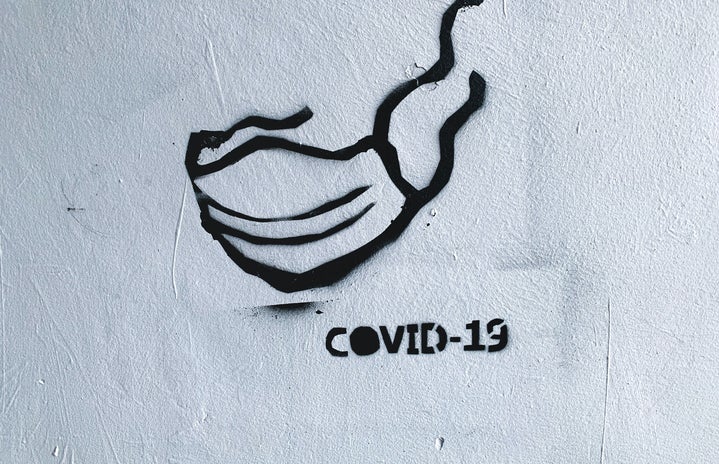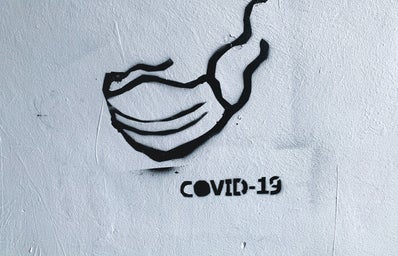Brazil is not dealing well with the pandemic. This sounds almost like an understatement. By now, we all know that what happened in the last year was not mismanagement of the country, but a policy of the government. The Senate approved the beginning of an investigation of the actions of the executive in the matter of the pandemic, that could expose, for once, that the policy was to let things happen, no matter what. This is the long-awaited “CPI da Covid”.
A parliamentary commission of inquiry (in Portuguese, Comissão Parlamentar de Inquérito, or CPI) is a way for Congress to perform its watchdog role. The commission can, for example, call ministers of state or request documents and information, to investigate a relevant theme for society.
In this case, the CPI is happening in the senate, with 11 members, and will discuss the pandemic, more precisely the actions of the federal government, “due to violation of the basic fundamental rights of the entire Brazilian population to life and health and for having, according to the Application, failed to follow the scientific guidelines of health authorities of global character, including the World Health Organization.”, according to the commission work plan. It will also address the transfer of funds of the federal government to states and municipalities.
Although it can’t judge or punish authorities, the commission can raise elements that might lead to an indictment in the appropriate responsible bodies. And that is a worry for the government.
The government itself began preparing. Days before the sessions were to begin, a document appeared with possible accusations that the commission could do, like that the government was negligent in the acquisition of vaccines, even refusing 70 million doses of Pfizer, minimized the pandemic, did not adopt measures to combat the vírus, did not create a plan of communication and disseminate fake news about the pandemic. The document was from the staff of the presidency and contained 23 accusations, opposing the 18 that the commission had prepared.
Of course, the situation was mocked by the opposition, with lines like this from Randolfe Rodrigues, senator and vice president of the commission, that said: “It is a pleasant surprise to learn that the CPI has not even started and already has a whistleblower. In fact, early whistleblowing, to be in line with the government’s performance in this field”.
Until April 28, 173 requirements were presented. They demand the submission of documents that show the actions of the Ministry of Health during the pandemic, like the distribution of oxygen or the entry of Brazil into the Covax Facility. Additionally, it is requesting the presence of several members of the government to speak, like every minister of health until now – Luiz Henrique Mandetta, Nelson Teich, Eduardo Pazuello and Marcelo Queiroga -, Paulo Guedes, minister of economy, representatives of Butantan Institute, Oswaldo Cruz Foundation, and from pharmaceuticals, like those responsible for Coronavac, Pfizer, AstraZeneca, Sputnik, and Jansen.
Beyond that, to begin work, the commission needed a president, a vice president, and a rapporteur. Omar Aziz (PSD-AM) was elected, with Randolfe Rodrigues (Rede-AP) as his vice, and they chose Renan Calheiros (MDB-AL), an opposition leader that led fear among those of the supporters of the government. His opening speech was harsh, leading the tone for the sessions. He said that the investigation was to be guided by science and specialists and that the enemies were those who “aligned to the virus”. And completed “The country has the right to know who contributed to the thousands of deaths, and they must be punished immediately and emblematically”.
The first testimonials were scheduled. All four ministers of health were to attend the commission. Luiz Henrique Mandetta and Nelson Teich on Tuesday, May 4, Eduardo Pazuello on Wednesday, and Marcelo Queiroga and the president director of Anvisa (National Health Surveillance Agency), Antônio Barra Torres, on May 6.
Mandetta’s statement lasted for seven hours, which delayed the meeting with Teich. Although nothing was exactly new, the former minister gave new views about his time in the ministry, while being technical, avoiding more ruptures with the president. He said “The feeling I had was that I was the messenger of bad news. You know when you give the news that you have to give, I think that loyalty is this, you do not let the person say ‘look, I was not advised, it was not explained’. It ended up creating more distance [between me and Bolsonaro].”
He pointed out that there were no campaigns to prevent the disease, and that there was no communication between ministries that should have been talking, like the minister of economy, Paulo Guedes, or of foreign relations, Ernesto Araújo. About Guedes, he stated “The Minister of the Economy didn’t help at all, on the contrary. He only said ‘I’ve already sent the money, turn around, now we’re going to run the economy.”
Beyond that, his testimonial exposed a possible parallel ministry that advised the president without the knowledge of his health minister. One case is highlighted, when Mandetta was called to a meeting, which he knew nothing about, with another ministries and physicians, and even Bolsonaro’s son, the councilman Carlos Bolsonaro, where he was presented with an enactment proposing to alter the package insert of chloroquine, to indicate that the medication would also serve covid-19.
“As a citizen, I can criticize. Even after I left, (the president continued to) deny the use of masks, deny the use of hand hygiene, deny the purchase of vaccines, deny the issue of (the importance of) testing, a series of denials, denials, denials. Today, 410,000 lives separate me from the president,” he said.
Nelson Teich, delayed for the next day, spent six hours speaking, but didn’t give anything new. He explained that asked to leave the duty because the government wanted to expand the use of chloroquine and by the lack of autonomy that he had. According to him, his successor, Eduardo Pazuello, was chosen by the government, and that in his choice, a minister needed to have a more widespread knowledge about health management.
Marcelo Queiroga, present Minister of Health, avoided answering the senators’ questions directly, also avoiding disagreement with Bolsonaro. He stated several times that make no “value judgment”, and refused to clarify his position about chloroquine or social isolation. This can be seen as a maneuver to not contradict the president.
When asked about the number of doses of vaccines contracted, the minister didn’t know for sure the numbers. He first said it was 560 million doses, but his advisor oriented him that in fact, the number was 430 million. But the number kept wrong. According to an official document from the Health Ministry, only 280 million doses are contracted, an insufficient number to vaccinate all the Brazilians until the end of 2021.
Some things were common between their speeches. The government indeed did not follow the recommendations of his ministries, created and was advised by a parallel group, had the intention to distribute chloroquine, a medicament not advise to treat the virus, and that the government bet on herd immunity, which included promoting anti-isolation measures and not investing in vaccines. The CPI could prove that the government took deliberate measures to make sure that the population became infected, giving no importance to how many would die.
Did you notice that we have not talked about Eduardo Pazuello and his testimonial? Well, it did not happen. To make a long story short, one week before the beginning of the CPI, Pazuello was seen in a shopping mall, without a mask. One day before his statement with the senators, he said that was suspicious of covid, and so could not attend the meeting. So, he is expected in the commission on May 19.
Is important to remember: when he joined the government as health minister, the number of deaths by Covid-19 was around 15,000, and when he left, it was almost reaching 300,000. It was also in his period that the government refused several contracts to buy vaccines. He also said, during his times, that “one rules, the other obeys”, referring to Jair Bolsonaro. His statement at the commission is feared since if he is responsibilized for his actions against the health of the country, the president would be too.
He alleged that he needed to isolate to prevent the possible infection of other people, but was seen receiving the visit of the Chief of Staff of the government, Onyx Lorenzoni, also the political coordinator of the government in the CPI.
Amid all, Bolsonaro kept making controversial statements, saying that China had created the Sars-Cov-2 to install a “chemical, bacteriological and radiological warfare”. One day later, the country reduced the ship of supplies for the vaccine. China is one of the most important partners of Brazil and is responsible for almost every dose of vaccine in the country until today.
The next on the list of hearing are Antônio Barra Torres, president-director of Anvisa, Fábio Wajngarten, former chief of the Special Secretariat for Social Communication, representatives of Pfizer, Ernesto Araújo, former minister of foreign relations, Eduardo Pazuello, former minister of health, Dimas Covas, president of Butantan and Nisia Trindade, president of Fiocruz. This next step in the hearings probably will focus, mainly, on the acquisition of vaccines.
Of course, all of this may or may not lead to something else. While many say the words “History will judge”, many Brazilians hope that this does not take long. After all, all the statements until now reaffirmed what the population has been saying for almost a year now: that the misleading of the pandemic is a policy to kill. Well, more than 400,000 died until now, what are we expecting?
—————————————————————–
The article above was edited by Gabriela Sartorato.
Liked this type of content? Check Her Campus Casper Líbero home page for more!



